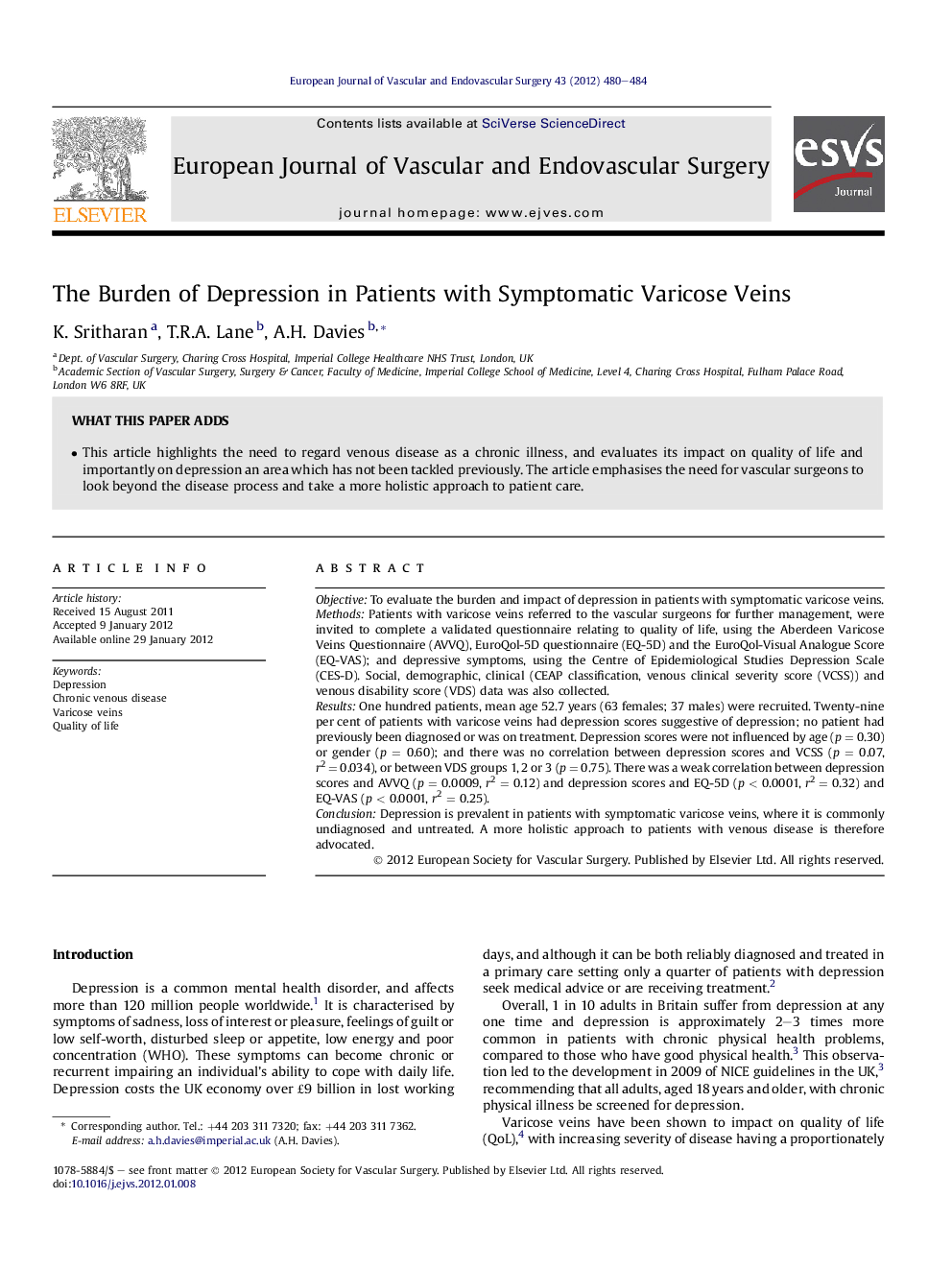| Article ID | Journal | Published Year | Pages | File Type |
|---|---|---|---|---|
| 2912165 | European Journal of Vascular and Endovascular Surgery | 2012 | 5 Pages |
ObjectiveTo evaluate the burden and impact of depression in patients with symptomatic varicose veins.MethodsPatients with varicose veins referred to the vascular surgeons for further management, were invited to complete a validated questionnaire relating to quality of life, using the Aberdeen Varicose Veins Questionnaire (AVVQ), EuroQol-5D questionnaire (EQ-5D) and the EuroQol-Visual Analogue Score (EQ-VAS); and depressive symptoms, using the Centre of Epidemiological Studies Depression Scale (CES-D). Social, demographic, clinical (CEAP classification, venous clinical severity score (VCSS)) and venous disability score (VDS) data was also collected.ResultsOne hundred patients, mean age 52.7 years (63 females; 37 males) were recruited. Twenty-nine per cent of patients with varicose veins had depression scores suggestive of depression; no patient had previously been diagnosed or was on treatment. Depression scores were not influenced by age (p = 0.30) or gender (p = 0.60); and there was no correlation between depression scores and VCSS (p = 0.07, r2 = 0.034), or between VDS groups 1, 2 or 3 (p = 0.75). There was a weak correlation between depression scores and AVVQ (p = 0.0009, r2 = 0.12) and depression scores and EQ-5D (p < 0.0001, r2 = 0.32) and EQ-VAS (p < 0.0001, r2 = 0.25).ConclusionDepression is prevalent in patients with symptomatic varicose veins, where it is commonly undiagnosed and untreated. A more holistic approach to patients with venous disease is therefore advocated.
